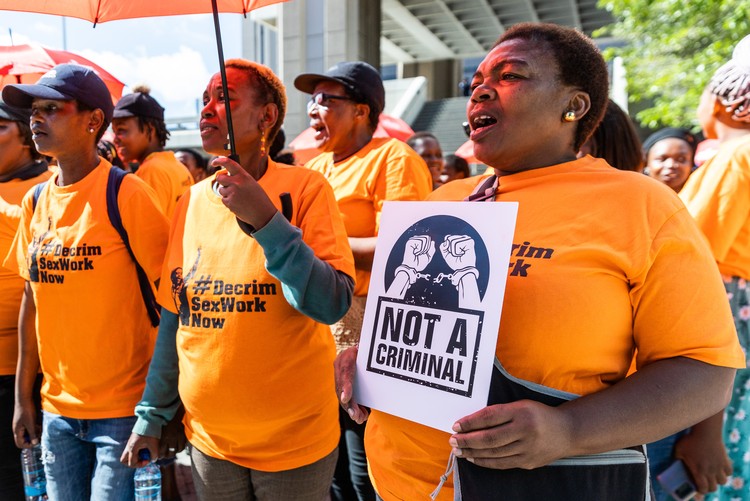No sex workers will be prosecuted while court process plays out
NPA issues directive to prosecutors not to enroll new cases
Sex workers will have a respite from prosecution until a court case that will determine whether sex work should be decriminalised concludes. The case may take years. Archive photo: Ashraf Hendricks
Sex workers will no longer be prosecuted, according to a new directive issued by the National Prosecuting Authority (NPA), pending the outcome of a court case launched by sex workers challenging the criminalisation of sex work in South Africa.
After years of consultations, the draft bill to decriminalise sex work was withdrawn to be redrafted in 2023. Two years later, in June 2025, SWEAT called on the Department of Justice to prioritise the “long-delayed” bill.
In October last year, the organisation launched legal action against the Minister and Director-General of Justice and Constitutional Development, the National Director of Public Prosecutions, and the City of Cape Town.
This week the Western Cape High Court ruled that dozens of organisation could join the court case as amicus curiae (friends of the court) or as respondents opposing the application.
The NPA has stopped prosecutions while the court process plays out. NPA spokesperson Mthunzi Mhaga said, “While a formal ‘moratorium’ has not been declared in the legislative sense, a directive has been issued within the NPA in line with current legal and parliamentary developments.”
Prosecutors have been instructed not to enroll new cases relating to sections in the the Sexual Offences Act and the Criminal Law (Sexual Offences and Related Matters) Amendment Act, he said.
Mhaga said this means “no new cases should be enrolled under the impugned provisions”, and where cases have already been enrolled, charges should be withdrawn. The cases where the accused has already pleaded are to be postponed pending the outcome of the court case.
With regards to arrests and prosecution going forward, if sex workers are arrested during this period, those charges will not be enrolled by prosecutors, and existing enrolled matters will “either be withdrawn or held in abeyance” until the court makes its ruling.
“This approach reflects both the current legal trajectory and the constitutional obligations on the NPA to act in accordance with evolving jurisprudence and human rights considerations,” said Mhaga.
The Sex Workers Education and Advocacy Taskforce (SWEAT) said it is celebrating the moratorium. In a statement, the organisation said that the decision “is a massive achievement for SWEAT and the sex worker rights movement”.
The organisation was concerned that there had been a spike in arrests, particularly following the launch of its litigation last year. This spike is confirmed by statistics from Cape Town Law Enforcement, which showed a spike compared to previous years, GroundUp previously reported.
SWEAT said in its statement that despite the moratorium, in August sex workers were still arrested in Cape Town, but charges were withdrawn.
“What is clearly illustrated is that arrests will continue even though there is a moratorium on prosecutions. We are therefore calling on the Minister of Police to also agree to a moratorium on the arrests of sex workers pending the outcome of our litigation,” said SWEAT.
Asked whether Cape Town’s law enforcement would continue to arrest sex workers, spokesperson Wayne Dyason said the City’s law enforcement does not “execute arrests for prostitution but may issue fines for solicitation”.
SAPS did not respond to a request for comment.
Support independent journalism
Donate using Payfast

Don't miss out on the latest news
We respect your privacy, and promise we won't spam you.
Next: City of Cape Town pauses decision to cut Dial-a-Ride services
Previous: Chart of the week: Postbank loses social grant clients
© 2025 GroundUp. This article is licensed under a Creative Commons Attribution-NoDerivatives 4.0 International License.
You may republish this article, so long as you credit the authors and GroundUp, and do not change the text. Please include a link back to the original article.
We put an invisible pixel in the article so that we can count traffic to republishers. All analytics tools are solely on our servers. We do not give our logs to any third party. Logs are deleted after two weeks. We do not use any IP address identifying information except to count regional traffic. We are solely interested in counting hits, not tracking users. If you republish, please do not delete the invisible pixel.

